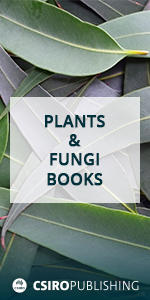
Functional Plant Biology
Volume 43 Number 12 2016
FP16187Tissue tolerance: an essential but elusive trait for salt-tolerant crops
For a plant to persist in saline soil, leaves should accumulate sodium and chloride to high concentrations, thus allowing energy-efficient osmotic adjustment. Adverse effects of these ions must be avoided, a situation known as ‘tissue tolerance’. This viewpoint considers the concept of tissue tolerance and how to measure it, to identify useful genetic variation that can be harnessed for plant breeding.
FP15391Natural variation in primary root growth and K+ retention in roots of habanero pepper (Capsicum chinense) under salt stress
In this work, we demonstrated the natural variation in mechanisms for protection against salt stress in pepper varieties. NaCl-induced K+ and H+ efflux in roots was also studied by ion-selective microelectrodes under application of pharmacological agents. Pharmacological analysis indicated that the NaCl-induced K+ leakage was mediated by TEA+-sensitive KOR channels but not by NSCC channels and we present evidence for participation of proline, and HAK K+ transporter for maintaining K+ homeostasis under salt stress.
FP16012Weak co-ordination between vein and stomatal densities in 105 angiosperm tree species along altitudinal gradients in Southwest China
Co-ordination between leaf vein and stomatal densities is required to achieve maximum photosynthetic yield. In this work we tested the generality of this co-ordination and found a weak correlation between vein and stomatal densities across 105 angiosperm tree species across altitudes from 800 to 2600 m in South-west China. This reveals decoupled adaptation in leaf venation and stomatal characteristics along a large altitudinal gradient.
FP16104Identification of an orthologous clade of peroxidases that respond to feeding by greenbugs (Schizaphis graminum) in C4 grasses
The greenbug can cause significant economic damage to several cultivated grasses. Peroxidases are a class of plant enzymes that have been associated with resistance to aphids. An equivalent region of genomes of three cultivated grasses contained evolutionarily-related peroxidase genes that were induced in response to greenbug herbivory, potentially linking this genomic hotspot to insect resistance.
FP16022Stress-induced changes in carbon allocation among metabolite pools influence isotope-based predictions of water use efficiency in Phaseolus vulgaris
Understanding how crops respond to environmental stress will expand our capacity to improve production. We explore the physiological and chemical responses of Phaseolus vulgaris L. to different stresses, identifying changes in the abundance of protective metabolites. We identify shifts in C allocation among metabolite pools and, through measuring compound-specific isotope abundance, identify the potential for changes in biochemical fractionation that may impact predictions of intrinsic water use efficiency. Our findings indicate biochemical traits that could help improve strategies to develop crops that can withstand adverse conditions.
FP16150Adaptation to and recovery from drought stress at vegetative stages in wheat (Triticum aestivum) cultivars
Intermittent drought and re-wetting events are common in agricultural systems. A study was conducted to evaluate the degree of morpho-physiological adaptations and recovery after re-watering in wheat during drought stress at different plant growth stages. The projected results indicated that genotypic variations in adaptability to and recovery from drought stress are indicators of drought tolerance and grain yield sustainability.
FP16045Leaf trichomes and foliar chemistry mediate defence against glasshouse thrips; Heliothrips haemorrhoidalis (Bouché) in Rhododendron simsii
Plants rely on adaptive defence mechanisms that mitigate against herbivory and increase the chance of survival. This comes with energy costs as defined by optimal defence theory so ideally should be targeted or responsive. Thrips cause seasonal damage to a species of Rhododendron but the impact is limited by tissue specific accumulation of both invertebrate toxins and trichomes explaining, surprisingly for the first time, how Rhododendrons tolerate herbivory.
FP16138Responses of woody Cerrado species to rising atmospheric CO2 concentration and water stress: gains and losses
Native plant responses to climate change are a critical issue for global ecology and food security. We investigated the relationships among rising atmospheric CO2, soil water availability and the growth of woody Cerrado species in open-top chambers. We found that the isolated effects of elevated CO2 were positive but under water stress, the growth of woody Cerrado species was impaired. Our results, which are the first to consider the influence of rising CO2 on these plants, will aid in Cerrado ecology and management.
FP16218Overexpression of ADP-glucose pyrophosphorylase in both leaf and seed tissue synergistically increase biomass and seed number in rice (Oryza sativa ssp. japonica)
Cereal yield is limited by the rate of starch biosynthesis and previous experiments have focussed on increasing starch in leaves or seeds. This study demonstrates that increasing leaf and seed starch simultaneously by using tissue specific overexpression of AGPase enhances yield more than with leaf or seed starch alone. Our results demonstrate that maximum yield in cereals are achievable with high level overexpression of rate-limiting enzymes in more than one tissue.




